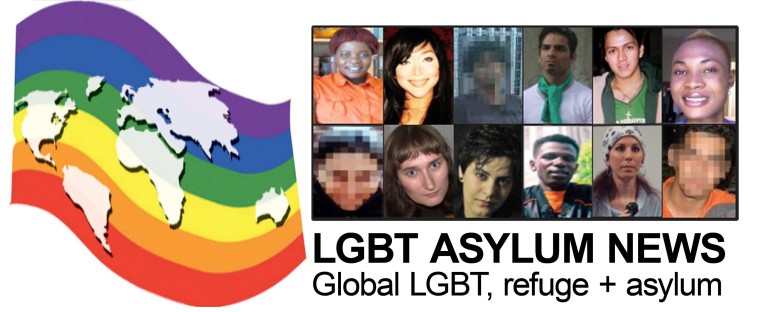 |
| Front cover of the Sept 2, 2010 edition of Rolling Stone, featuring a photo of David Kato (left) and Bishop Christopher Senyonjo (right). |
The man named by Ugandan police as having confessed to the murder of gay activist David Kato has been sentenced to thirty years imprisonment in a Ugandan court today.
Kato was a leading LGBT activist in Uganda and his death was mourned world wide, with vigils in several cities and including a statement by President Obama. The murder lead to a exceptional, positive editorial in the indepedent Monitor newspaper described by blogger GayUganda as "a real big deal".
Sidney Nsubuga Enoch, 22, is alleged by the police to have had unwanted sexual advances made on him by Kato. According to the prosecution, after bludgening Kato with a hammer the accused made off in Kato's clothes with a camera, keyboard for a computer, teeshirts, shoes and a mobile phone.
Alledgedly Nsubuga was was brought to police by residents in another suburb and then confessed. In statements made after the arrest police insisted that Kato had got Nsubuga out of prison, offered him somewhere to stay then was murdered after refusing to pay for sex and the crime was not linked to his LGBT activism.
“He told us that he killed Kato after he failed to give him a car, a house and money he promised as rewards for having sex with him,” a police source told The Monitor at the time.Kato had just won a High Court judgement stopping the infamous 'outing' campaign of Ugandan newspapers against gays.
At the time Frank Mugisha, executive director, Sexual Minorities Uganda (SMUG), said:
“I highly think his death is related to the homophobia from the religious groups and to winning the High Court judgment against the newspaper.”The official press office of the Ugandan government had quickly issued an official statement on its “investigation” of the motives behind Kato’s murder, before Nsubuga was questioned. The details from the statement matched very closely a conspiracy theory posted by the managing editor of the Ugandan Tabloid which conducted a “Hang Them!” campaign last September featuring Kato’s picture on the front cover. The same newspaper against which Kato had won a judgement.
Rolling Stone managing editor Giles Muhame posted a nearly identical conspiracy theory surrounding Kato’s death on Facebook. Muhame named “Eden” Nsubuga as the “DESPERATE prisoner whom (Kato) attempted to force into a cruel sex bang.” Muhame also alledged that “the embassies have been giving Kato dollars which he has been flashing around to seduce young boys” and that “it’s estimated he sodomized about 300 boys in his regime as 'king of sodomy honchos’ in the country.”
It is generally believed in Uganda that gays are funded by foreigners, rich and seduce young boys and girls into 'the lifestyle' - propoganda planted, supported and enhanced by American evangelicals who regualrly visit the country.
Mugisha, who has known Kato for several years, since their years working together at Integrity Uganda, said, “It is highly unlikely that David would pay anyone for sex.”
As with many others who worked with SMUG, Kato often had to scrounge around for money to help bail people who were arrested, especially if they were LGBT, which meant that they would have been disowned by their families, and on their release from jail would have been homeless, said Mugisha.
Mugisha said:
“Anyone who knew David knew that he didn’t have any money to promise anyone a house, car, as was reported. The media says David had a house and car, but all the stories are untrue. They are saying that David was trying to give money to a straight person and that SMUG and David were getting money from foreign sources, and that he had lots of money.”According to Mugisha, a month before his demise Kato had told him that he was afraid for his safety.
Mugisha said that the virulent anti-gay pastor Martin Ssempa reportedly said that Kato was killed because he was living a dangerous life as a gay person.
Questioning the integrity of Ugandan police and courts is perfectly legitimate given that in 2010, Uganda was ranked at number 127 out of 178 countries by Transparency International.
The sentence on Nsubuga may actually be one of death. In July Human Rights Watch reported on the state of Ugandan prisons, finding prisoners "subject to brutal compulsory labor, frequent violence, miserable overcrowding, and disease".
Donations can be made in David’s memory to bring more legal and human rights work to Uganda, as well as providing safety and sanctuary for other Ugandans facing persecution by clicking HERE.








 Join our page
Join our page


0 comments:
Post a Comment